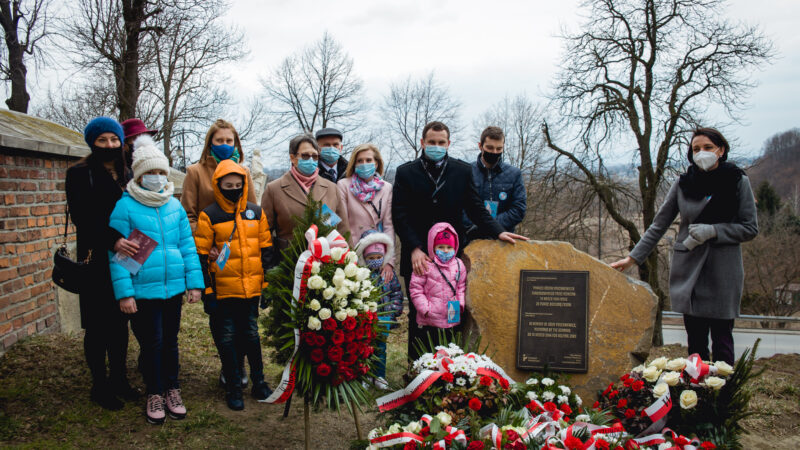The Polish National Day of Remembrance of Poles Rescuing Jews
On the anniversary of the death of Józef and Wiktoria Ulma and their six children, murdered by the Germans along with eight Jews from the Goldman, Gruenfeld and Didner families whom they were sheltering in the village of Markowa, located in the Podkarpacie region of Poland, we also remember all Poles who tried to save Jews from the Holocaust despite the threat of severe repressions.
The German occupation policy in Poland during World War II was aimed at annihilating any solidarity between Poles and Jews – the citizens of the fallen Second Polish Republic. Under German law, the penalty for helping the persecuted Jews was death. However, it was not only those who hid Jews or helped them for a long time that were at risk. In some instances, the saviours’ families, household members and even neighbours would be murdered as well. Unjust legislation, mandatory denunciation, and brutal repressions introduced an atmosphere of terror and made Poles hostages to the Third Reich’s genocidal policy.
Solidarity with the Jews in such circumstances was nothing short of heroism, especially in light of other options chosen by some citizens, who became blackmailers, denouncers and collaborators working with the enemy. We salute all those who risked their own lives and those of their loved ones to show support for their Jewish neighbours. It was a confirmation of strong attachment to their humanity, as well as recognising Jews not only as fellow citizens but as “their brethren”, despite the Germans’ intention to exclude them from society, rob them of their dignity, and finally, exterminate them. Our thoughts are especially with the Poles who paid the highest price for helping Jews – ones murdered by the Germans as a punishment for doing so. Their fates were poignantly intertwined with those of the Holocaust victims. It was not uncommon for both the saviours and the people they sheltered to die at the same time.
All these stories are worthy of becoming a permanent part of our collective memory. Some of them have already found their way into the world’s collective consciousness, with their heroes having been awarded the title of Righteous Among the Nations. Many others are still waiting to be discovered, studied and documented. Both wise remembrance practices and well-planned education are necessary. Many institutions carry out activities to commemorate Poles murdered by Germans for helping their fellow Jewish citizens. Commemorative plaques are set up at the scenes of these crimes – in villages and small towns, with the participation of the victims’ families and local communities. The ceremonies in which we participate are an opportunity to speak honestly about the Holocaust of the Jewish people and the fate of the Poles who saved them, as well as the ruthless reality of the German occupation and its victims, but also about heroism and denunciation.
Although different in scale, the suffering of Jews and the suffering of Poles during World War II should not compete with each other. The victims’ stories do not clash but rather complement one another, forming a complete and true image of the German Nazi terror in occupied Poland.
Warsaw Ghetto Museum
Photo: “Called by Name” project (https://instytutpileckiego.pl/en/projekty/zawolani-po-imieniu)

